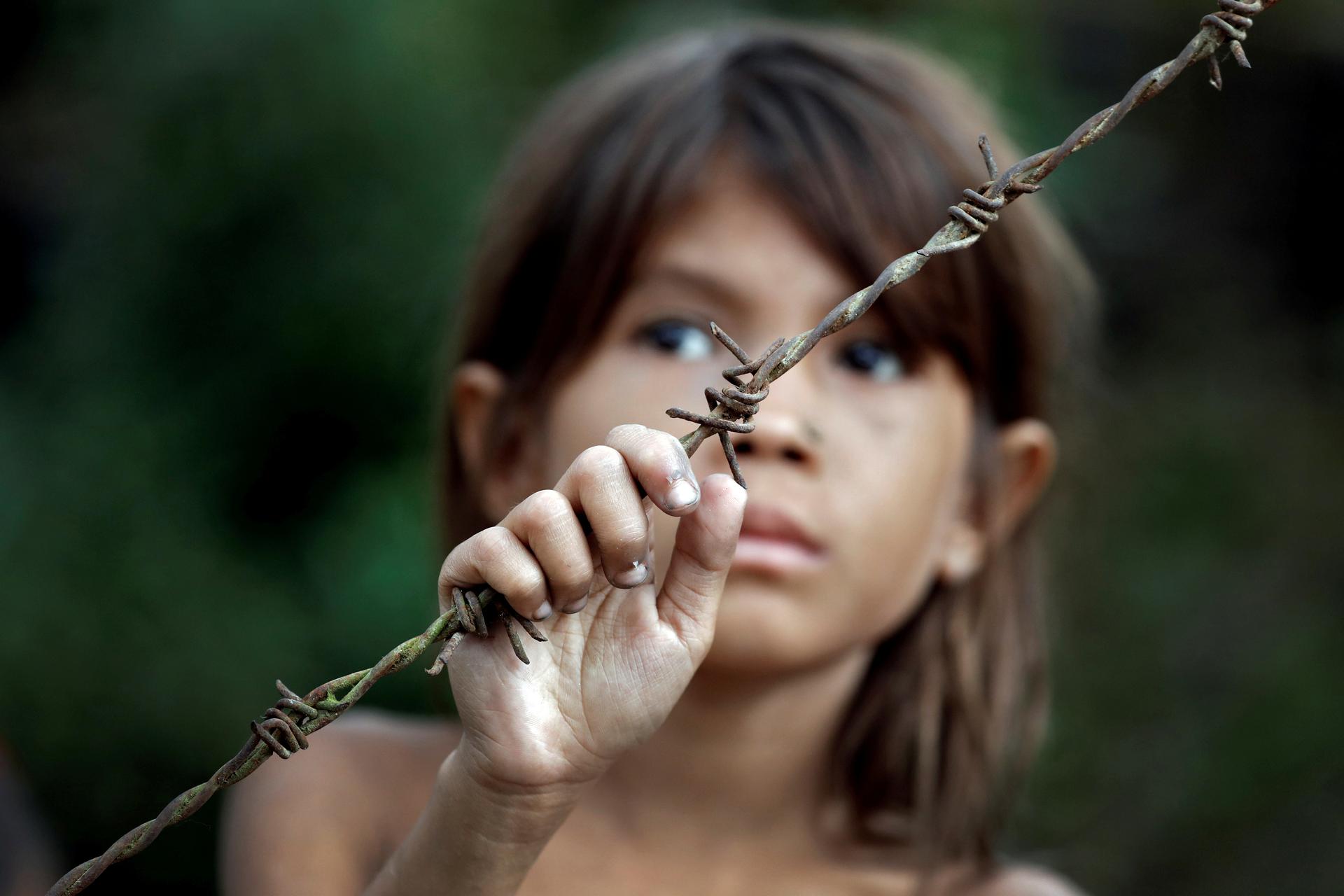A Rohingya girl at a refugee camp in Cox's Bazar, Bangladesh, Sept. 28, 2017.
Myanmar's Rohingya are living a nightmare.
The country's military has run rampant through Rohingya villages in Rakhine state. The armed forces have shot residents, burned homes and systematically raped girls and women. That's led hundreds of thousands of the predominantly Muslim Rohingya to flee to squalid refugee camps in Bangladesh.
But the plight of those who have remained in Rakhine state is often worse. They live in barracks-style housing surrounded by guards and checkpoints. It's a setting that some are calling "21st-century concentration camps."
"The government doesn't have a plan or an intention to bring [the Rohingya] out of there," says Andrea Pitzer, author of "One Long Night: A Global History of Concentration Camps." "They're not allowed to come and go … I do think that makes them part of a punitive concentration camp strategy."
Pitzer says the recent democratic opening in Myanmar allowed the Rakhine ethnic group to push for more local control. The Rakhine see Muslims as a threat to that power.
"They are Buddhist and they have deep historical roots in this state," Pitzer says. "They control the state legislature and just see themselves as being threatened by this growing Muslim population that they see as really being from Bangladesh."
Listen to the full interview and hear more of Pitzer's thoughts on the internal power struggle between the Rohingya and the Rakhine ethnic group.
Related: More than half of Rohingya refugees in Bangladesh are kids. Many are fleeing Myanmar alone.
